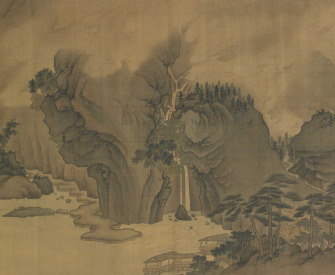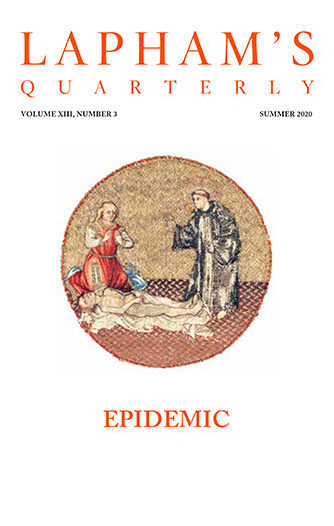Our teacher Mozi says, “In the present age, since the sage kings who ruled during the ancient three dynasties have passed away and the world has lost sight of what is right, the feudal lords all take force as their guiding standard. As a result, rulers and other superiors are not kind while ministers and other subordinates are not loyal. Fathers are not loving and sons are not filial, elder brothers are not good to their younger brothers, younger brothers are not respectful of their elders, and proper conduct in general is not observed. Those in charge of the government do not exert themselves in their administrative duties, while the common people do not exert themselves in the pursuit of their various tasks. This is also why people abandon themselves to licentiousness, violence, piracy, rebellion, thievery, and robbery, and use weapons, poisons, water, and fire to stop travelers on the roads and byways, and rob their carriages, horses, coats, and furs in order to profit themselves. As a result, the world is in great disorder.
“If we ask how this came about we will see that it is all because people have developed doubts concerning the existence of ghosts and spirits and do not understand that ghosts and spirits can reward the worthy and punish the wicked. Now if we could just persuade the people of the world to believe that ghosts and spirits can reward the worthy and punish the wicked, then how could the world ever become disordered?”
Now those who maintain that ghosts and spirits do not exist say, “Throughout the world there are innumerable reports about hearing and seeing ghostly or spiritual entities, but who really can offer testimony about having heard or seen ghostly or spiritual entities?”
Our teacher Mozi says, “If we are looking for someone who has seen what so many have seen and heard what so many have heard, then in ancient times Du Bo is a good example. King Xuan of Zhou killed his minister Du Bo even though he was completely innocent. Before he died, Du Bo said, ‘My lord is killing me even though I am completely innocent. If the dead are indeed unconscious, then that will be the end of it. But if the dead are conscious, within three years’ time my lord shall know of this!’ Three years later King Xuan and various feudal lords were off hunting in the wilds. There were several hundred chariots and several thousand men on foot; the hunting party filled the entire field. At high noon, Du Bo appeared in a plain chariot pulled by white horses. He was wearing vermilion clothes and a hat, holding a vermilion bow, and clasping vermilion arrows under his arm. He pursued King Xuan of Zhou and shot him as he rode in his chariot; the arrow pierced the king’s heart and splintered his spine. King Xuan collapsed in his chariot, and draped over his own bow case, he died. None of the men from Zhou who were there at the time failed to witness this, and none even in remote places failed to hear about it. The event was recorded in the court chronicle of Zhou. Rulers referred to it when instructing their ministers, and fathers referred to it as a warning to their sons, saying, ‘Be cautious! Be watchful! Misfortune will surely befall all those who kill the innocent, and they will suffer the punishments of ghosts and spirits in this swift fashion!’ And so, if we look at things in terms of what is written in the court chronicle of Zhou, then how can we doubt that ghosts and spirits exist?”
© 2001 Hackett Publishing Company. Used with permission of Hackett Publishing Company, Inc.
From The Mozi. Living in the period between the death of Confucius in 479 bc and the birth of Mencius around 371 bc, Mozi professed a doctrine of undifferentiated love: “When everyone regards the states and cities of others as he regards his own, no one will attack the others’ state or seize the others’ cities.” In his eponymous work of philosophy, he recounts that after he heard that the state of Chu planned to attack his native Song, he walked for ten days and nights to dissuade the ruler from launching the assault; he was successful.
Back to Issue



